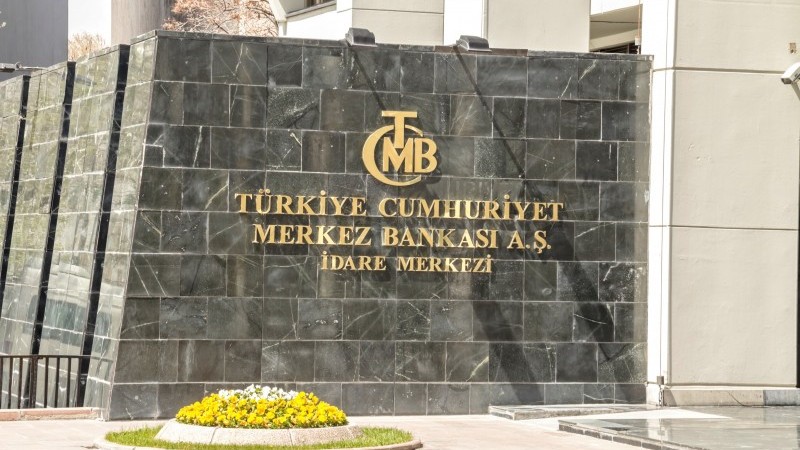18 contenders jump into Turkey’s two-horse presidential race to unseat Erdogan
ISTANBUL — As the run-up to the Turkish elections gathers speed, the race for president appears to be between incumbent Recep Tayyip Erdogan — who formally filed an application for his candidacy in the elections today — and opposition leader Kemal Kilicdaroglu.
But outside the two favorites, 18 other contenders have submitted applications to the Supreme Election Board to compete for the highest office on May 14, offering insight into aspects of Turkish politics not usually seen by outside observers.
Among the better-known candidates are a former Maoist revolutionary who in recent years has become largely supportive of Erdogan; the son of Turkey’s first Islamist prime minister; and a former member of Kilicdaroglu’s party who failed spectacularly when he stood for the presidency five years ago.
The candidates, who unlike Erdogan and Kilicdaroglu have not been nominated by parliamentary parties, must jump through a series of hoops to have their applications approved, such as collecting 100,000 signatures of support and paying a fee of some $29,000.
Dogu Perincek is the 80-year-old leader of the Vatan (translated as Fatherland or Motherland) Party. His involvement in politics stretches back to the 1960s when he was part of several left-wing groups, resulting in his incarceration after a 1971 military coup.
Following his release in 1975, he continued his communist path before he was again jailed after a 1980 coup. He also spent time behind bars over the following decades, all totaling 15 years of his life.
Perincek’s political outlook appears odd to foreign observers, blending socialism with nationalism. The party espouses opposition to the United States and the West, preferring ties with China and Russia. As such, “Eurasianist” former military commanders who share opposition to NATO have joined the party.
For someone with such a colorful political career, Perincek has unsurprisingly flirted with controversy many times. The most notable reminder is a 1991 photograph of him accepting a flower from Turkey’s public enemy No. 1 — Kurdistan Workers Party leader Abdullah Ocalan — during a trip to a militant training camp in Lebanon.
Although electorally unsuccessful — Perincek got fewer votes in the 2018 poll than he initially collected to enter the race, amounting to 0.2% of the vote — he is said to wield disproportionate influence, especially in foreign relations with Russia.
The party has media holdings to trumpet its message in the form of Ulusal TV and newspaper Aydinlik, which often follow a pro-Erdogan line.
Fatih Erbakan is the 44-year-old son of one of the most influential figures in modern Turkish politics. Necmettin Erbakan was the founder of the National Vision movement from which Erdogan’s Justice and Development Party (AKP) stems.
He led a coalition government featuring his Refah (Welfare) Party, as prime minister in the late 1990s before being forced to step aside by military chiefs in 1997 in what became known as the “post-modern” coup. Erbakan Sr. is often cited as a mentor to Erdogan.
Fatih established the New Welfare Party in 2018 to continue promoting his father’s Islamist line. The party has not participated in any nationwide elections but last year fielded a candidate in a small-town mayoral race, only to be trounced by the AKP runner.
Its leader garnered publicity during the COVID-19 pandemic. Pushing an anti-vaccination policy, Fatih claimed vaccines could lead to the birth of “half-human, half-monkey” babies or “creatures with three ears and five eyes.”
The New Welfare Party was one of several small parties reportedly being courted by Erdogan to join his People’s Alliance. Fatih, however, spurned such advances and announced his own candidacy on Monday.
On Tuesday’s deadline for presidential candidates’ applications, the election authority said Fatih’s claim was invalid due to missing documents, a claim denied by his party.
Another familiar face running for office is Muharrem Ince, who represented Kilicdaroglu’s Republican People’s Party (CHP) in the 2018 presidential race. He split from the CHP two years ago to form the Memleket (Homeland) Party, which he says embodies the Kemalist principles ignored by the CHP as it tries to appeal to a wider base.
After filing his candidacy application on Monday, Ince, a 58-year-old former physics teacher, claimed to have 30% support among voters and said he would win the second round of the election — which will be held two weeks after the first round if no candidate receives more than half the vote — with 60% of the ballots.
Such bombastic enthusiasm, however, may not sit well with those who remember election night in 2018.
The culmination of a promising campaign saw Ince vow to protect ballot boxes from interference until the early hours if necessary. But when Erdogan won outright in the first round, polling 52.6% to Ince’s 30.6%, he vanished from public view, only acknowledging his defeat to a journalist via WhatsApp. His disappearance even led to rumors that he had been held against his will.



